


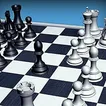







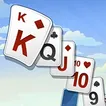
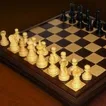

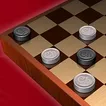

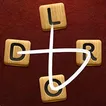


























FreeCell Games: Master the Art of Solitaire
FreeCell, a classic variant of solitaire, stands out with its unique blend of strategy, skill, and luck. Unlike traditional solitaire, FreeCell involves open cells that act as temporary storage for cards, adding a layer of depth to the gameplay. This game is not only about the luck of the draw but also about how you maneuver through each challenge with the cards you’re dealt.
The game’s setup includes a standard deck of 52 cards, arranged in eight tableau columns with four foundation piles and four free cells. The objective is to build up the foundation piles by suit, starting from aces to kings. The twist lies in the free cells, which can be used to move cards around as you organize the tableau columns by alternating colors in descending order.
Playing FreeCell online has become a favorite pastime for many, as it requires no downloads or registrations, offering instant access to this brain-teasing game. Its universal appeal lies in the game’s ability to provide a mental workout, challenging players to think several moves ahead and adapt their strategies as the game progresses.
The beauty of FreeCell lies in its perfect balance between challenge and solvability. With every game being potentially winnable, players are encouraged to refine their strategies and improve their skills. It’s a game that rewards patience and strategic planning, and with each victory, players feel a sense of accomplishment that keeps them coming back for more.
Whether you’re a seasoned player or new to the world of solitaire, FreeCell offers an engaging and satisfying experience. It’s a game that transcends age and skill level, inviting everyone to master the art of solitaire one card at a time.
FreeCell Solitaire: Strategies, Rules, and Tips
FreeCell Solitaire is a game that combines the need for strategic foresight with the excitement of card play. To excel, one must understand the rules and employ effective strategies. The game begins with all cards face up, providing full visibility to the player, which means success lies in how you manipulate the tableau and free cells to your advantage.
The primary rule is to arrange all cards into the foundation piles, sorted by suit and in ascending order from aces to kings. The free cells are pivotal; they temporarily hold cards and thus, are instrumental in maneuvering the tableau. Use them wisely, as they are limited in number and the more free cells available, the more options you have for moving sequences of cards.
Strategically, it’s crucial to prioritize moves that uncover hidden cards and free up tableau columns. Always move an ace or two to the foundation as soon as possible. Try to keep the free cells empty for as long as you can, and transfer long sequences by utilizing empty tableau spaces. Remember, the key is to create vacancies in the tableau by clearing entire columns when feasible.
Another tip is to plan several moves ahead, considering the order of cards and the consequences of each action. Avoid placing cards in the free cells without a clear plan for their release, as a full free cell is a blocked opportunity. Also, be mindful of the color and number of the cards when building sequences in the tableau; this foresight can prevent dead-ends and unwinnable scenarios.
In summary, FreeCell Solitaire is a game of patience and strategy. By understanding the rules and applying these tips, you’ll enhance your gameplay and increase your chances of winning. Each game is a new puzzle to solve, and with practice, you’ll find your moves becoming more intuitive and your victories more frequent.
The Evolution of FreeCell: From Origins to Online Play
FreeCell’s journey began in the mid-20th century, rooted in the classic game of solitaire. It gained popularity due to its unique feature of “free cells” that provided a strategic twist on the traditional format. The game’s exact origins are somewhat obscure, but it is widely believed to have been developed by Paul Alfille in the 1970s. Alfille’s version was the first to use all 52 cards, setting the standard for FreeCell as we know it today.
The game’s popularity surged in the 1990s when it was included as part of a well-known operating system’s entertainment package. This digital incarnation introduced FreeCell to a global audience, making it a household name. The digital version also added features like game numbers, allowing players to replay and share specific game setups, further enhancing its appeal.
With the advent of the internet, FreeCell made a seamless transition to online play. Websites dedicated to the game began to emerge, offering variations and challenges to both new and experienced players. The online platforms allowed FreeCell enthusiasts to play anytime and anywhere, without the need for physical cards or a gaming console. The game’s format was perfectly suited for the digital realm, with its clear-cut logic and turn-based play.
The move to online play also brought about a community aspect to FreeCell. Players could now compete against others, share strategies, and track their progress through leaderboards. The digital evolution of FreeCell not only made the game more accessible but also helped in refining strategies as players shared tips and tricks within the community.
Today, FreeCell continues to be a beloved pastime, with its core principles intact yet enhanced by the reach and capabilities of online play. Its evolution from a tabletop solitaire variant to a digital favorite showcases the timeless appeal of a game that challenges the mind and offers endless hours of entertainment.
Enhancing Your FreeCell Experience: Cognitive Benefits and Achievements
Playing FreeCell isn’t just a way to pass the time; it’s an exercise for your brain that can have lasting cognitive benefits. Engaging in this strategic card game can improve your problem-solving skills and enhance your ability to think ahead. As you plan your moves and anticipate the outcomes, you’re giving your brain a workout that can increase mental agility and concentration.
Moreover, FreeCell requires a good memory to keep track of the moves you’ve made and the sequences you’re building, which can help sharpen your recall abilities. The game’s need for strategic planning and flexible thinking can also translate into better decision-making skills in real life, as you learn to weigh your options and consider future consequences.
Tracking your progress in FreeCell can be incredibly satisfying. Most digital versions of the game include statistics and achievements, allowing you to set personal goals and strive to beat your best scores. These features add a layer of motivation and competition, even if you’re only competing against yourself. Celebrating your achievements, such as completing a particularly challenging game or improving your win rate, can provide a sense of accomplishment and boost your self-esteem.
In essence, FreeCell is more than just a game; it’s a tool for mental enhancement. By regularly challenging yourself with FreeCell puzzles, you can keep your mind sharp and enjoy the intrinsic rewards that come with mastering this timeless card game. Whether you’re looking to unwind or engage in some brain training, FreeCell offers a perfect blend of entertainment and cognitive stimulation.
